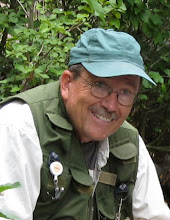These words, penned by Carol Ruvolo in her introduction to Footprints of the Fisherman, set the stage for looking at Peter and his relationship with Christ as our guide to relating as fallen but redeemed sinners.
When we first start looking for biblical role models, Peter might not be high on our list. Christ himself, of coarse, is our ideal example, He was a man without sin—a standard that we can strive for but never hope to fully achieve in this life. My next choice would be the Apostle Paul—again a very high standard. God's Word reveals Paul's dramatic conversion on the road to Damascus, and the details of God's plan of redemption are made clear to us through Paul's inspired epistles. We know that Paul wasn't perfect because he tells us so when he speaks of his "thorn in the flesh."
So to keep me from becoming conceited because of the surpassing greatness of the revelations, a thorn was given me in the flesh, a messenger of Satan to harass me, to keep me from becoming conceited. Three times I pleaded with the Lord about this, that it should leave me. But he said to me, “My grace is sufficient for you, for my power is made perfect in weakness.” Therefore I will boast all the more gladly of my weaknesses, so that the power of Christ may rest upon me. -2 Corinthians 12:7-9
Paul was the converted Pharisee, born in Rome and educated to be a teacher of the law, while Peter was a lowly fisherman. The credentials would favor Paul if you were looking for a rock on which to build a church. Yet Christ said to Peter: "You are Peter and on this rock I will build my church and the gates of hell shall not prevail against it." I know that there are different interpretations of this passage among Christians, but no matter how you interpret it, Christ gives Peter a major role in the foundation of the church.
So, Christ chose a common man with little education and no qualifying experience; a man who responded harshly and arrogantly to the necessity of the cross. He was a man who loved Christ, but, at first, didn't understand what that meant (John 21:15-19). And he was a man who would deny Christ three times. Today's leadership role model includes qualities like charisma, credentials, and confidence. Peter' chief qualities were humanity, helplessness, and hardship.
The point is not that God doesn't use the attributes he gives us, but that he also delight in being glorified through our weakness. I believe that is why Peter's failures are chronicled in scripture. So that we can see by his example that our failures don't disqualify us for service in Christ's Kingdom, but that they may serve to teach us and humble us, and they make God's glory shine even brighter by showing His power through our powerlessness.
We need not pray that God would make us weak, we already are, but that he will take away our false assumptions about our own abilities. Peter grew in his relationship with Christ after each failure. He was not as quick-witted as some of the other apostles. However, the lesson he learned well that made him more teachable was humility—not a highly prized trait in today's world but one we should pray for. And how can we not be humble if we dwell on the majesty, power, and grace of our triune God who lifts us from our degradation and redeems our souls?
Paul was the converted Pharisee, born in Rome and educated to be a teacher of the law, while Peter was a lowly fisherman. The credentials would favor Paul if you were looking for a rock on which to build a church. Yet Christ said to Peter: "You are Peter and on this rock I will build my church and the gates of hell shall not prevail against it." I know that there are different interpretations of this passage among Christians, but no matter how you interpret it, Christ gives Peter a major role in the foundation of the church.
So, Christ chose a common man with little education and no qualifying experience; a man who responded harshly and arrogantly to the necessity of the cross. He was a man who loved Christ, but, at first, didn't understand what that meant (John 21:15-19). And he was a man who would deny Christ three times. Today's leadership role model includes qualities like charisma, credentials, and confidence. Peter' chief qualities were humanity, helplessness, and hardship.
The point is not that God doesn't use the attributes he gives us, but that he also delight in being glorified through our weakness. I believe that is why Peter's failures are chronicled in scripture. So that we can see by his example that our failures don't disqualify us for service in Christ's Kingdom, but that they may serve to teach us and humble us, and they make God's glory shine even brighter by showing His power through our powerlessness.
We need not pray that God would make us weak, we already are, but that he will take away our false assumptions about our own abilities. Peter grew in his relationship with Christ after each failure. He was not as quick-witted as some of the other apostles. However, the lesson he learned well that made him more teachable was humility—not a highly prized trait in today's world but one we should pray for. And how can we not be humble if we dwell on the majesty, power, and grace of our triune God who lifts us from our degradation and redeems our souls?

